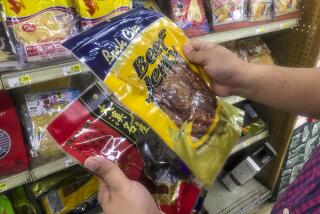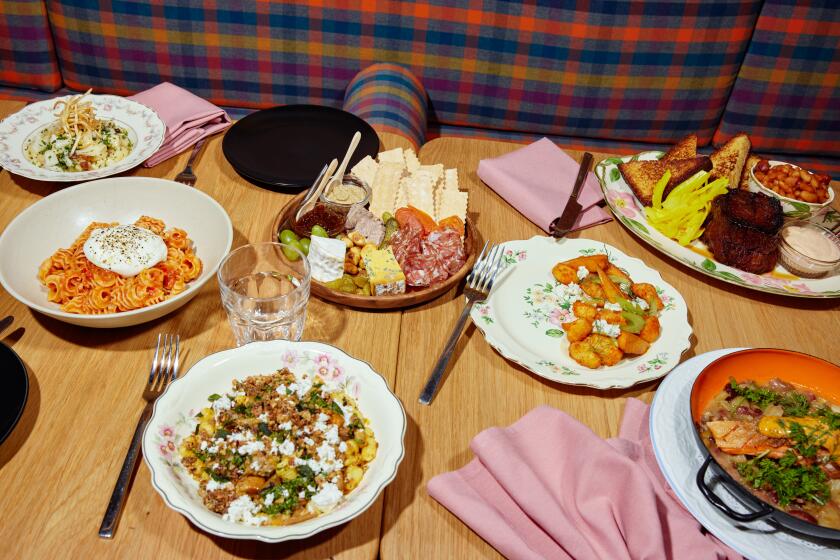The melamine-tainted trail
- Share via
The melamine was in the eggs that arrived in Hong Kong, the biscuits in the Philippines, the foil-wrapped chocolate coins sold across Canada and cookies and candy here in California. The latest round of discoveries of Chinese-produced food tainted with a cheap, illegal and dangerous additive started with preemptive testing in Hong Kong and spread from there with additional tests in other countries.
The world’s hunger for ever-cheaper products has wrought a perpetual state of food-safety alert. Hong Kong is expanding its melamine tests to include meat, vegetables and processed foods. More countries, including this one, should be taking similarly aggressive protective steps, holding foods from China for testing before they are released to markets and restaurants.
The world is only starting to learn how ubiquitous melamine, used in the production of plastics, has become in Chinese agriculture. In the case of the melamine-laced infant formula and other dairy products that killed four babies and sickened more than 50,000, the melamine -- which falsely boosts protein readings -- appears to have been added directly to milk that had probably been watered down. It’s believed to have been fed to chickens that laid the eggs, raising suspicions that it might be found in other farm animals. It’s even used in pesticides, raising the specter of tainted produce.
These products spread globally through the manufacture of processed foods, which mix basic ingredients such as eggs and powdered milk from around the world. Biscuits made in the Philippines and shipped to Hong Kong were also found to be contaminated with melamine, but it’s unclear whether the substance was added in that country or whether it came from Chinese-produced milk. Adding to consumer concerns, the labels for packaged foods tell only where the food was processed, not where the ingredients originated.
“Made in China” has come to imply goods produced cheaply by cutting corners, disregarding the environment and dispensing with consumer safety. Chinese authorities keep promising to bring their country’s food up to “world-class” standards, and tests on a majority of products show no violations. Still, given the country’s continuing scandals, its food is best considered suspect until proved safe.
More to Read
Eat your way across L.A.
Get our weekly Tasting Notes newsletter for reviews, news and more.
You may occasionally receive promotional content from the Los Angeles Times.










